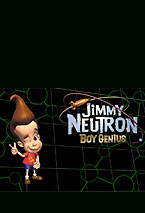Prior Knowledge

I had my sixth graders draw/describe what they think an atom looks like, what they think a molecule looks like, and ask at least one question about atoms, to see what they know as we begin studying the nature of matter.
The solid ball model of the atom was common. Some children drew the "Jimmy Neutron" logo - and identified it as such. Molecules were usually larger than atoms, but otherwise similar, or else were two connected circles. A few kids drew circles connected by lines. Several drew a double helix, and some could identify it as DNA.
Questions...
What is an atom? How are atoms and molecules related? Is a molecule part of an atom? Is there anything smaller than an atom? How small are they, anyway? Can you see them?
We went over some of the history of scientific thinking about atoms and elements today, from Democritus to Thomson. We updated the plum pudding model to the chocolate chip cookie dough model. A lot of it is kind of hard to explain to 11-year-olds - like cathode ray tubes - but it brings out a lot of important points about the nature of science. We talked about the difference between Greek philosophy - reasoning about the nature of the universe - and Enlightenment science - experimenting to prove and disprove theories. And we talked about how scientists test each others' ideas, to confirm, disprove, or add to them.
In one class, in the last few minutes, a student raised her hand and asked what electrons are made of. I briefly explained quarks.
Wait, so, is there anything smaller than quarks? another student asked.
Yes, but it gets a little complicated...
Another hand goes up. So, basically, everything is made of something smaller? Does it go on forever?
Now you're thinking like a philosopher or a scientist! That's the question we're trying to answer: what is this stuff around us? You could become a physicist and work on trying to answer this question.
When you think about it, it's pretty amazing the first time you learn about atoms and molecules. Most kids have heard of these things, but they know almost nothing about them. Their questions are the questions, about the nature of the universe. They are excited, learning the answers to questions they've had for a long time but might never have consciously asked before.






3 Comments:
Sweet.
Last time I was in science class quarks were it....what's smaller now?
I was thinking about some of this stuff...
Post a Comment
<< Home